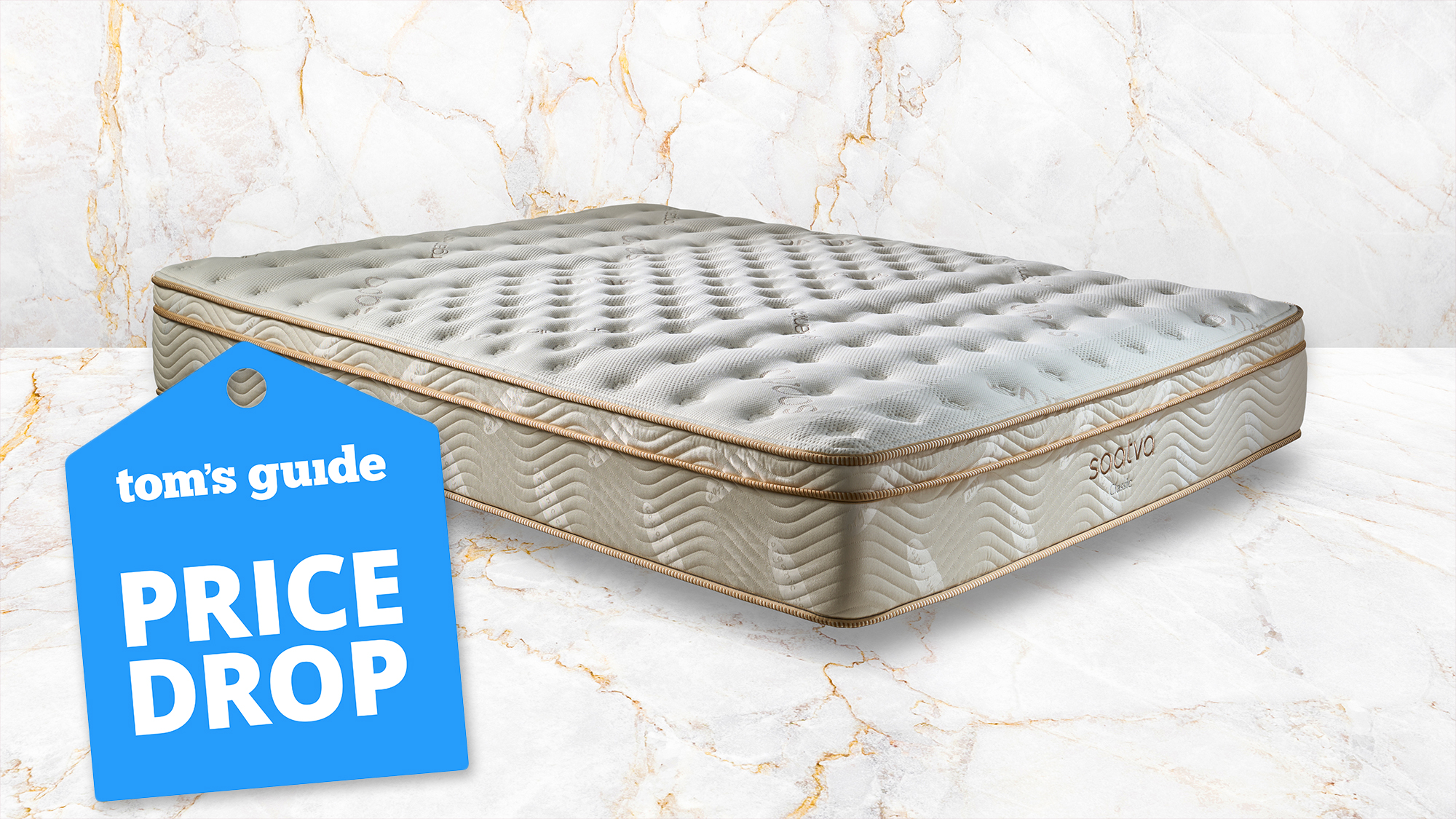'Why do I wake with neck pain every morning?' I asked a chiropractor to help with my sleep woes
Your mattress, pillow and sleep position could all be to blame for neck pain, says chiropractor

As a combination sleeper who likes to switch between side and stomach sleeping, it's not uncommon for me to wake up with an achy neck.
Carrying this pain into the day adds to morning grogginess and makes sitting at a desk particularly uncomfortable.
Sleeping on the best mattress for your sleep style can make a huge difference, but lifestyle factors contribute to recurrent neck pain too.
So, I've consulted Gonstead Chiropractor Dr. Ryan Suh to find out exactly what's causing my morning neck pain and what I can do to prevent it. Here's what he advises...
Waking up with neck pain every morning? Common reasons why
From your sleep set up to your sleep position, there are many culprits of neck pain...
1. You have a poor sleeping position
Poor sleeping posture is one of the main culprits of stiffness and pain in the neck, says Dr. Suh. And certain sleep positions, such as sleeping on your stomach, can put additional strain on your neck.
"Sleeping on your stomach is the most problematic, as it forces the head to turn to one side for hours, putting strain on the cervical spine," he explains, especially when your pillow doesn’t adequately support the head and neck.
Sign up to get the BEST of Tom's Guide direct to your inbox.
Get instant access to breaking news, the hottest reviews, great deals and helpful tips.
Shifting positions during the night can also strain our necks, resulting in spasms and pain, which I know all too well as a combination sleeper.
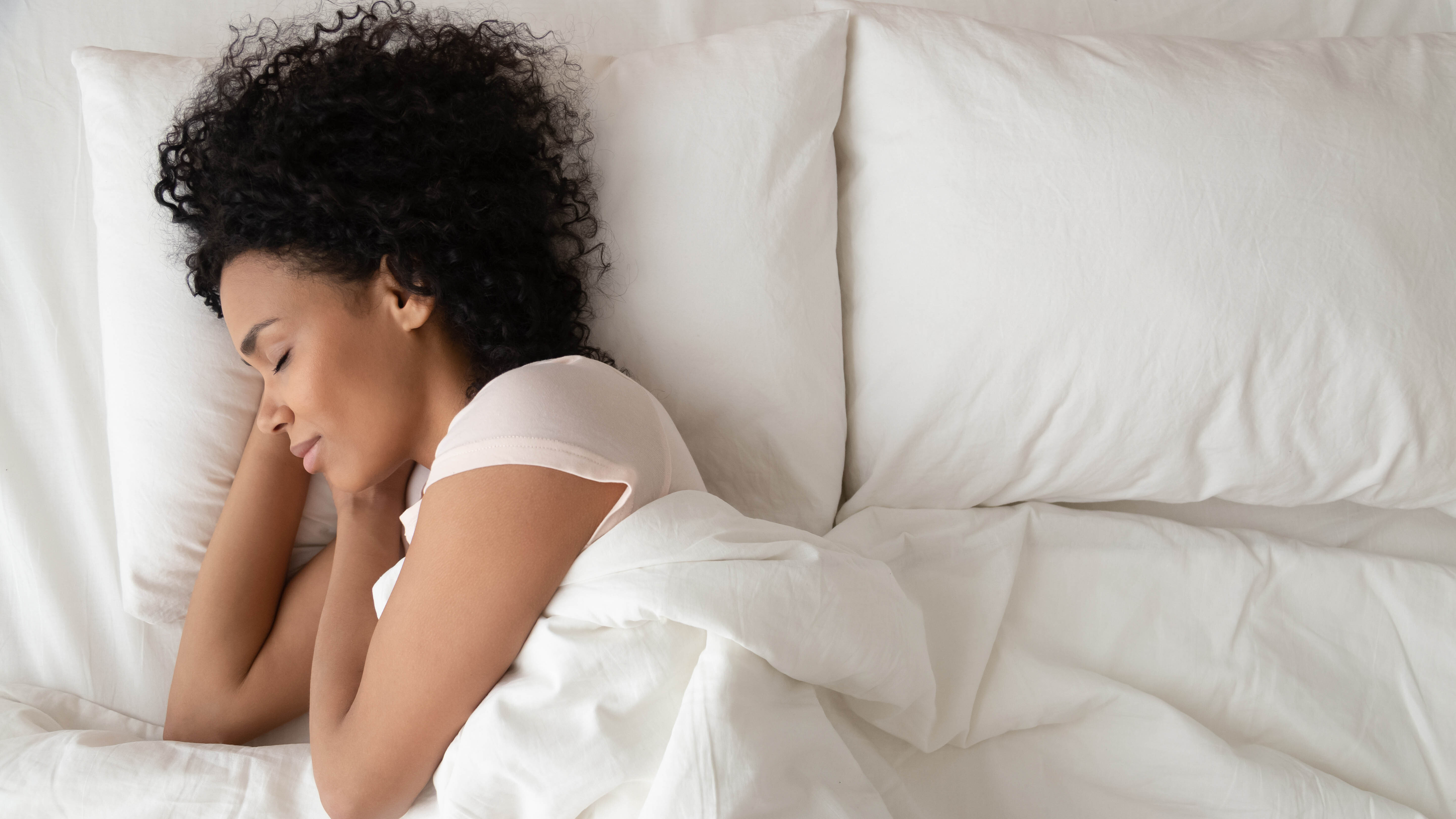
2. You're using the wrong pillow
How important is a pillow to your sleep? The answer is super important, according to Dr. Suh.
A pillow with the wrong loft (height) disrupts proper spinal and neck alignment. This can cause your neck to bend in a way that, over the course of 7-9 hours, will result in it becoming stiff and sore.
An unsupportive pillow can create pressure points or force the head into an unnatural position overnight. Muscles must work harder to maintain posture, resulting in pain come morning.
3. You're sleeping on an unsupportive mattress
Your bedroom set up should accommodate your sleep needs, so you can get easily get comfortable and drift off to sleep ache-free.
Similarly to pillows, a mattress that lacks sturdy support can cause muscles across the neck and back to work harder in order to compensate, resulting in pain upon waking.
The best memory foam mattresses with that traditional sinking feeling may be comfortable and cushioning for side sleepers, but back sleepers generally need a more firm, responsive sleep surface for healthy alignment.
So, you'll want to choose your mattress wisely, taking note of your sleep position and body weight, when tackling neck pain.
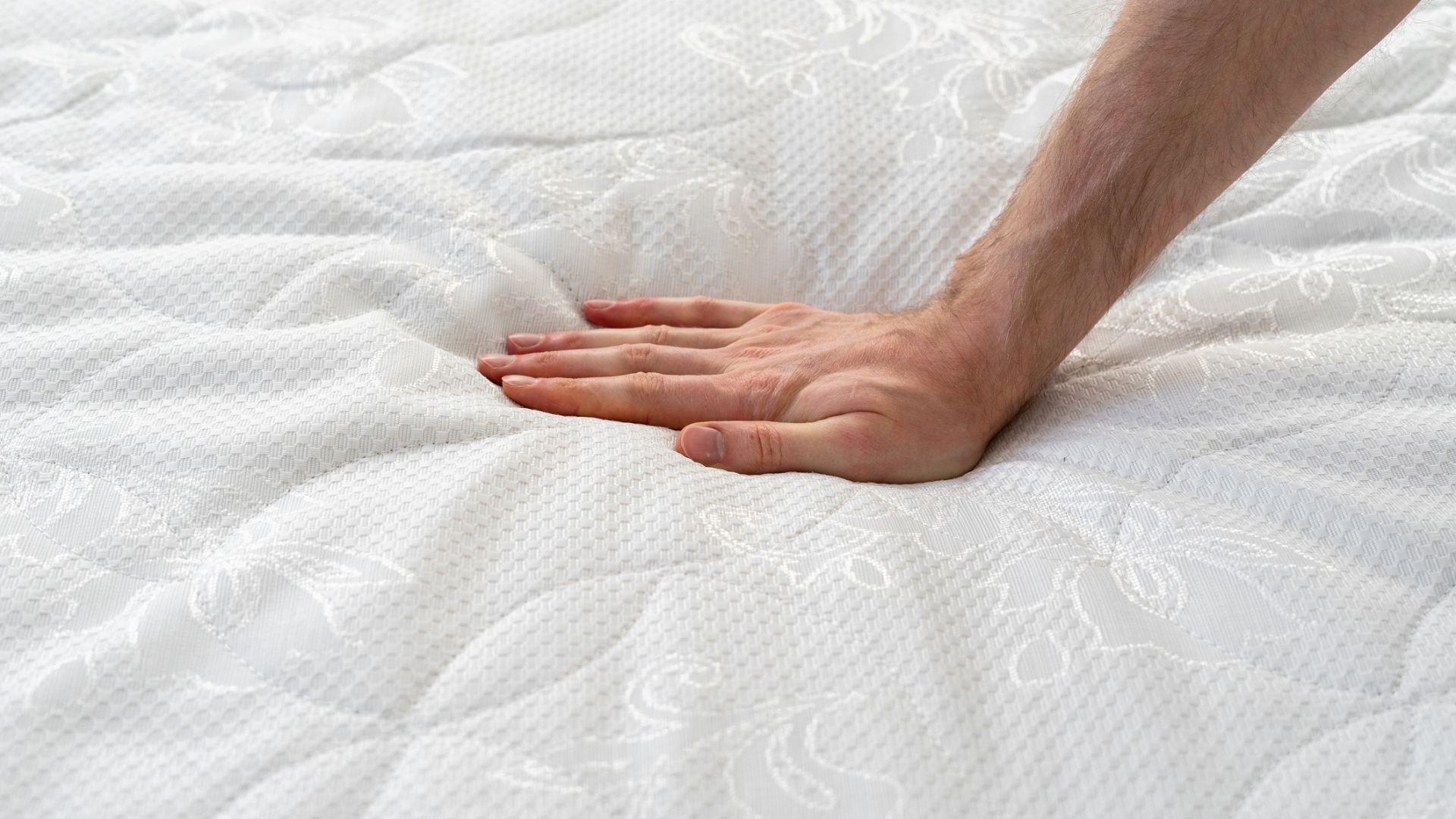
Other factors that contribute to recurrent neck pain
Besides your bed and sleep position, I was surprised to learn there are lifestyle factors that can contribute to neck pain too — namely, dehydration and stress.
"The discs between our vertebrae are composed largely of water, and dehydration can reduce their cushioning ability, making the spine more susceptible to stiffness and discomfort," Dr. Suh explains.
"Additionally, muscles need proper hydration to function optimally — when dehydrated, they can become tight or cramp, contributing to neck pain."

What about the effect of stress? "Stress leads to muscle tension, especially in the neck and shoulders," says Dr. Suh.
"This chronic tightness can reduce blood flow, limit mobility, and increase sensitivity to pain," he explains.
"Many people unknowingly clench their jaw or hunch their shoulders when stressed, creating a cycle of tension that manifests as neck pain."
How to reduce neck pain during sleep
Reducing nighttime neck pain begins with investing in your bedroom and paying attention to your sleep style, here's what you should know...
Invest in the right mattress for your sleep needs
Take it from me, a seasoned mattress writer and tester, the right mattress for you will be one that offers plenty of pressure relief, comfort and support for your chosen sleep position.
Dr. Suh says a medium-firm mattress that supports the spine's natural alignment is ideal for most sleepers. But mattress firmness and comfort is subjective.
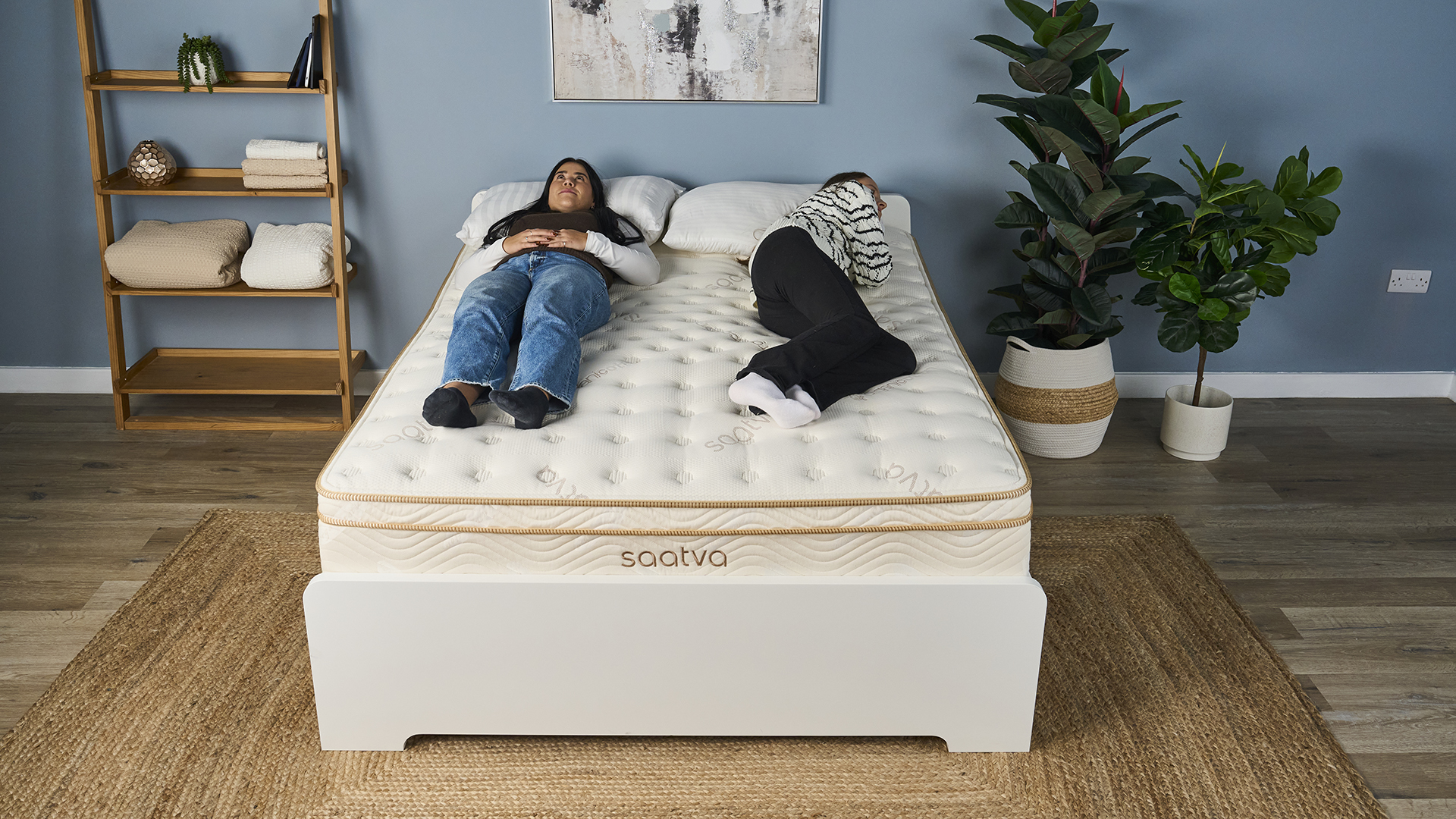
Therefore, our mattress buying guides — from the best mattress for back pain to the best mattress for side sleepers — pull together a variety of top-rated mattresses with specialized features to accommodate different sleep styles and needs.
If you don't have the budget for a new bed right now, a mattress topper is a quick, more affordable fix.
The best mattress toppers we've tested this year all add a layer of comfort and support to existing mattresses that is sure to help you ward off neck pain.
Don't overlook your pillow
The best pillows on the market are designed to cater to different sleep styles and bodies. The right choice for you will be one with the right loft and materials for healthy neck and spinal alignment.
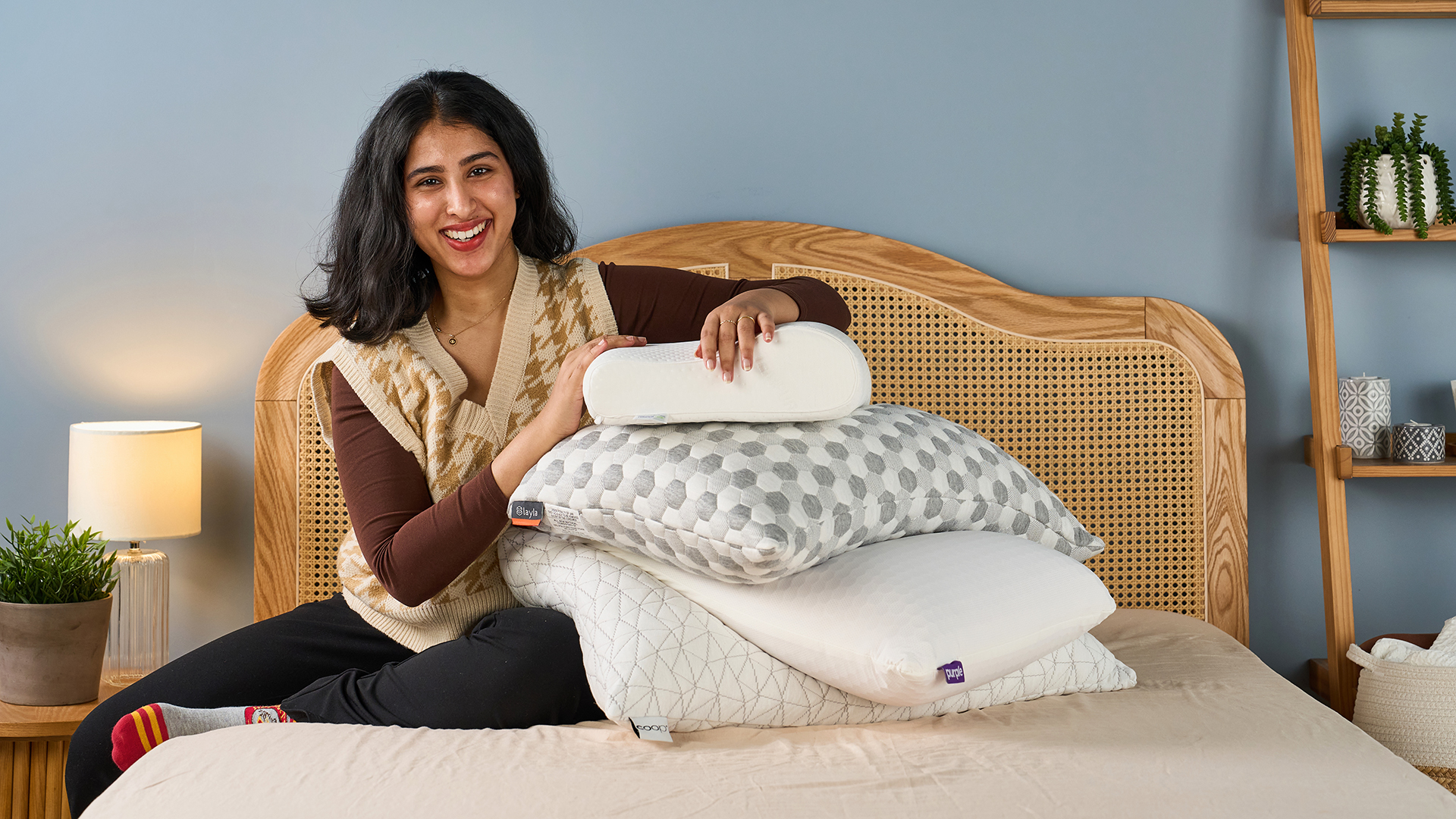
"The key is to match the pillow height and firmness to your sleeping position," Dr. Suh advises.
"Back sleepers should use a thinner pillow with neck support of 2.0" thickness or thinner, while side sleepers need a firmer, thicker pillow to fill the gap between the head and shoulder, 2.5" to 2.75" thick."
"Memory foam and cervical pillows are great options for maintaining neck alignment," he adds.
Switch up your sleep position
Sleep position is ingrained in us almost like whether you're right or left handed. You don't chose it, it just kind of happens.
Yet stomach sleeping is the so-called 'worst sleeping position' and experts often recommend you break the habit, switching to the supposedly elite side sleeping position instead.
Heading Dr. Suh's advise, I'm switching to my side whenever I find myself drifting into a stomach sleeping position. A side sleeping pillow can help you make this change too if you're a natural stomach sleeper.
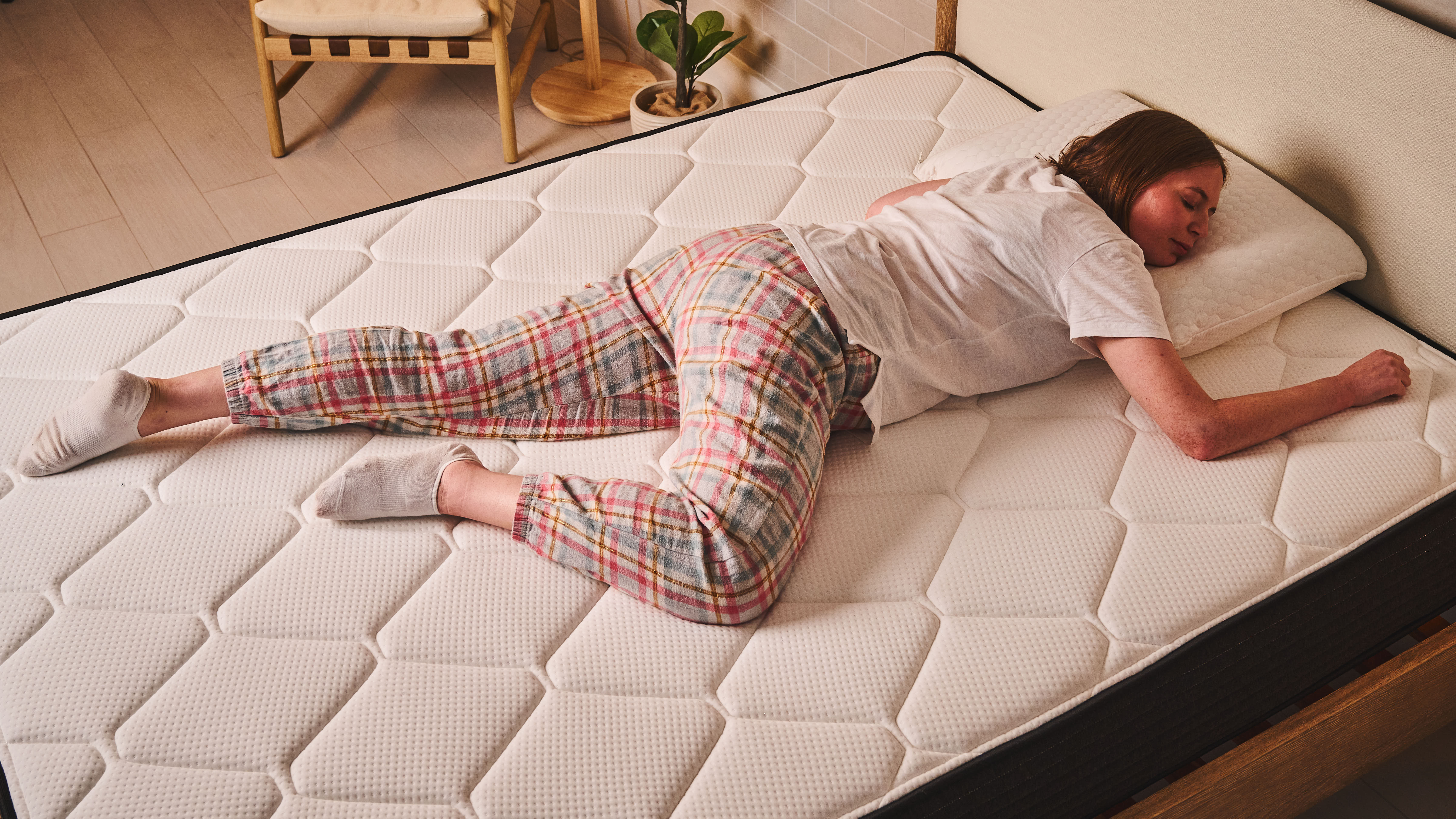
Other ways to relieve neck pain
Your daytime and bedtime habits can also influence your susceptibility to morning neck pain.
Hence, following a calming nighttime routine allows your body and mind to relax before you hit the hay, dissipating stress and anxiety that can keep you tense through the night.
Drinking plenty of water through the day is essential for many health reasons, including steering clear of neck pain. Ample water ensures the neck discs remain well oiled and pain-free.
If all else fails and you've woken up with an achy neck, Dr. Suh recommends gentle neck stretches and mobility exercises to improve circulation and reduce stiffness; a warm shower to relax tense muscles; applying a cold compress directly to herniated discs or using a foam roller on the upper back.
If symptoms persist, consult with your doctor or a chiropractor who can offer chiropractic adjustment and posture assessment to prevent recurring issues.

Eve is a PPA-accredited journalist with an MA in Magazine Journalism from Cardiff University. She is a Sleep Staff Writer at Tom’s Guide and has four years’ experience writing health features and news. She is particularly interested in the relationship between good sleep and overall health. At Tom’s Guide Eve is responsible for coverage and reviews of sleep tech and is our smart and cooling mattress specialist, focussing on brands such as Eight Sleep and Sleep Number. She also covers general mattress reviews, seeks out the best deals to produce tried-and-tested buyer's guides for sleep accessories and enjoys writing in-depth features about sleep health. She has been involved in rigorous testing procedures for mattress reviews in our Sleep Studio and has interviewed experts including sleep doctors and psychologists. When not covering sleep at Tom's Guide, Eve enjoys writing about health and fitness, food and culture.
You must confirm your public display name before commenting
Please logout and then login again, you will then be prompted to enter your display name.
